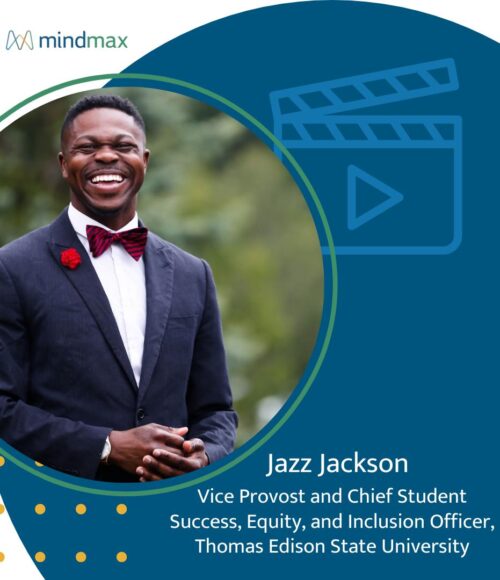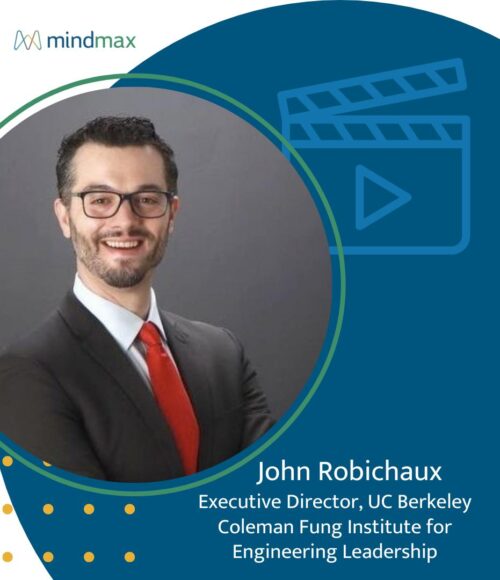Maximize the Current Moment
Discovering Opportunity in Online Learning
The American psychologist Abraham Maslow developed a hierarchy of needs to explain how people focused their time, energy, thought, and action. For most of the last century, many of us were lucky to be near the top of the hierarchy, rarely spending our days fretting over food or our physical safety.
During this pandemic, however, we have spent a great deal of our time, energy, thoughts, and actions ensuring the physical safety of ourselves and others. We are having what I call a “Maslovian Moment,” as businesses, governments, healthcare facilities, and educational institutions reevaluate what is essential in light of COVID-19.
For institutions of higher education, there are unique opportunities in this moment. Technology has made remote learning possible, accessible, and powerful. Schools who use the summer to develop educational models that fit the medium will be able maximize their opportunities, develop strong programs and offerings, and create an enduring model for online education.
Learning from History
Throughout the years, technological advances have offered the chance to rethink the way information is delivered. All too often, however, companies and colleges alike prefer to settle for the safe and comfortable status quo.
The same holds true for virtual classrooms. In the early iterations of remote learning programs (remember CD-ROMs in the 1990s?), schools tried to recreate the lecture hall rather than utilize the unique strengths of the new medium. As a result, programs took longer to create and were more expensive than they needed to be. What’s more, these programs offered suboptimal learning experiences and failed to reach an expanded student base.
COVID-19 has quickly turned the slow embrace of online education into a bear hug. A 2012 study found that 32% of students were enrolled in at least one online course; in fall 2020, it’s hard to imagine that number being below 90%.
Maximizing the Moment
In the wake of the coronavirus shutdown, professors were given as little as 2 days to convert their classroom lectures and curricula into an online format. These efforts have been met with a wide variety of responses, including class action lawsuits by families who don’t feel they’re getting the full value of the education they’re paying for.
Of course, creating a platform for true “remote learning” isn’t the same as lecturing on Zoom and uploading your syllabus to the cloud. It takes time, thought, and adaptation. The most successful educators will lean into the unique benefits of online learning, including:
- Chat Features: Asking another student a question during a lecture is considered rude. However, online chat features allow students to pose questions to the group or TA if a student has a question. Instead of being confused for the remainder of class, students can ask questions and receive answers in real-time.
- Multimedia: Instead of relying on the captive audience of the classroom, professors can employ multimedia—animations, video, music—to create a layered learning experience and hold students’ attention.
- Timing: Online learning allows for a broader range of times for class meetings. On-demand courses allow students to do their classwork when they have the time—especially beneficial for those with jobs or family commitments.
It’s crucial to design online curricula in a way that honors the reality of student’s lives. Students are often juggling work, school, and family; their learning environment might be the kitchen table or a child’s bedroom. It may be difficult for them to stay attentive to an hour-long video of their professor standing in front of a white board. By accepting and honoring the reality of the people you serve, you’ll be able to design experiences that are effective, educational, and engrossing.
Every college has its own set of circumstances, challenges, and opportunities. If you’d like more support examining your school’s unique position, set up a complimentary session with me by emailing cholt@MindMax.net. We’ll leverage MindMax’s experience in strategic advising, marketing, and enrollment to brainstorm ideas for short-term crisis management and longer-term positioning for your institution.
Related Ideas
Jazz Jackson Wants to Help Every Student Finish What They Start

John Robichaux Wants Lifelong Learning to Drive Public Impact
